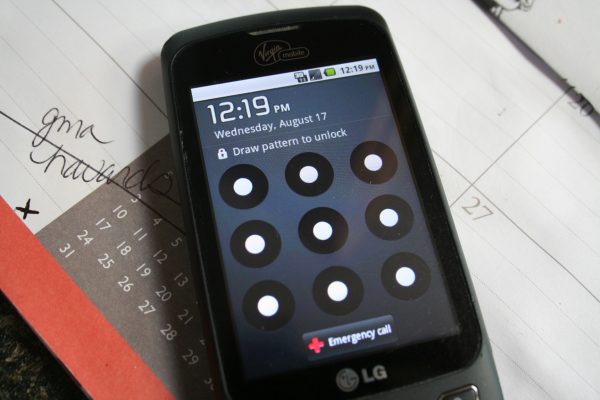Unencrypted Phones Pose Security Threat for Students, President Alike
April 18, 2017
In recent months, the question of phone security has surfaced across news outlets and general society due to Trump’s use of his old Android phone in the White House. The technology news site, Wired, states that “…Android phones have notoriously uneven security because the operating system is open source, allowing manufacturers and third-parties to put modified versions, or ‘forks,’ of Android onto devices before selling them.” In other words, Android phones are unencrypted phones that are more vulnerable to hackers and malware.
While it is up to each person’s discretion to use an unencrypted or encrypted phone, unencrypted phones are more vulnerable to unwanted third parties. Many Fordham students cite their right to privacy and the importance of protecting important information such as credit card numbers, emails and social security numbers in their reasoning for choosing a phone. Samuel Brown, Fordham College at Rose Hill (FCRH) ’17, noted that encrypted phones are important because “even though a phone can be remotely locked and wiped, a thief still could have time to clone your phone’s storage before it is noticed missing.”
Most Fordham students said that besides the typical phone updates and passwords, they didn’t have any extra layer of protection, nor did they care too much about upgrading their phone security. Ana Zeneli, Fordham College at Lincoln Center (FCLC) ’18 said she believes “as long as you lock your home screens and don’t share your passwords,” it doesn’t seem necessary for students to have tight phone security. However, other students did feel more concerned about their own security and have file encryption on, which is available through various free or paid apps for both iOS and Android operating systems.
Students treaded lightly upon the topic of the President and his personal use of an Android phone in the White House. “To put it in broad terms, I believe that any public official with top security clearance should have an encrypted phone with all possible security measures enacted. If not, it worries me that it might reflect the type of government we may have,” said Matthew Apadula, FCLC ’18.
Meanwhile, we turned to the director of Fordham’s Cybersecurity Center, Dr. Thaier Hayajneh, for his expertise. He said that encrypted phones should be important to Fordham students because they “will protect their privacy, especially if the phone is lost or stolen then their data will be secured from laymen. It would require a very skilled person to actually break into the phone encryption.”
That being said, which phones are actually encrypted right out of the store? On the Fordham website, the IT Ramcell service recommends the iPhone 6s, iPhone 6s Plus, Samsung Galaxy S7, HTC 10 or the Galaxy Note 7. Although not all these phone models come with a certain level of encryption, they can be modified to add file encryption to protect student’s information and privacy.
If Fordham students have any questions protecting their information, they can ask Fordham IT or their provider for assistance. Overall, there is a general consensus that is important to keep your phone updated and to keep any sensitive information to yourself.
“The most important thing here is to be extra careful with any app that [students] download and install on their phones,” Dr. Thaier Hayajneh said. “They have to verify the source, make sure it is trustworthy and read all the text in the app agreement. The devil is in the details of the apps and what runs in the background of the phone operating system.”












